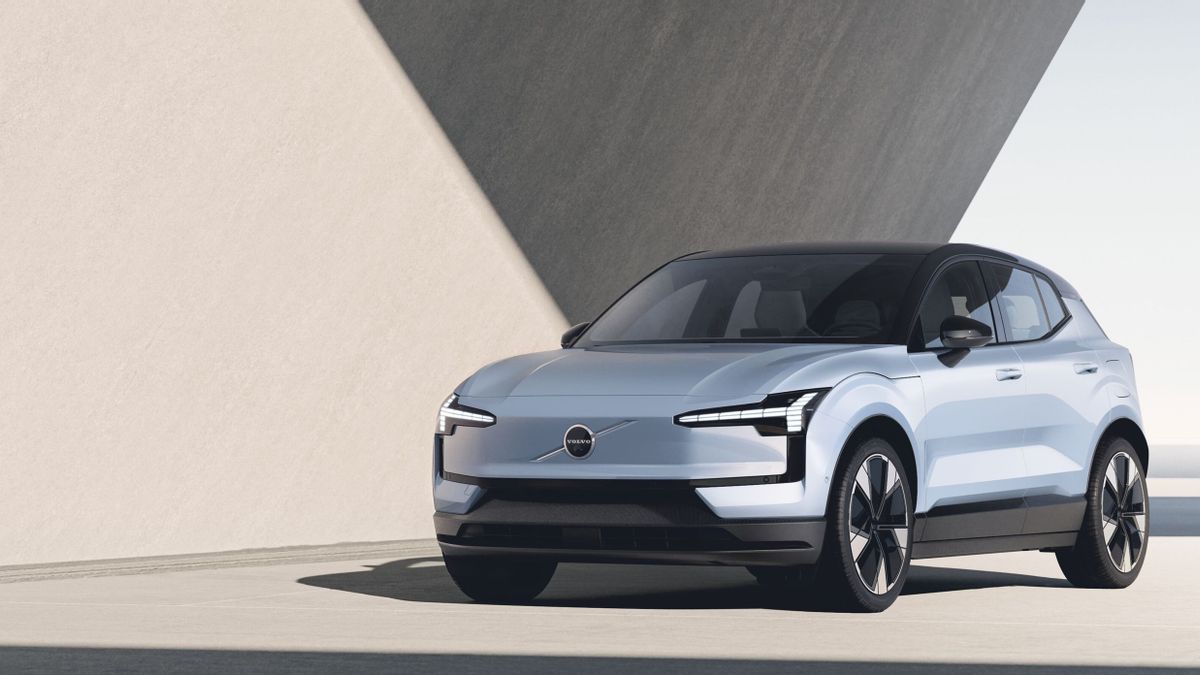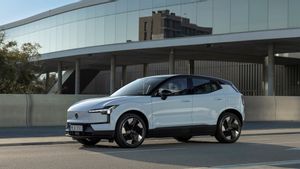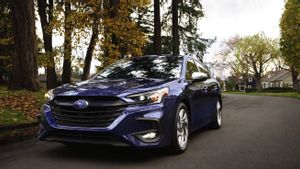The Volvo announced that it will bring EX30 produced in China at the Beijing International Automotive Exhibition (Beijing Auto Show) 2024 which will be held today, April 25.
But not only that, there is another big news, the Volvo EX30 production in China will be present at a US dealer next summer. Its presence deserves to be observed, EX30 is one of the few Chinese-made cars to be sold in the United States.
Interestingly, EX30 offers performance and efficiency equivalent to the Tesla Model Y, the world's best-selling electric car, but at a price of around 8,000 US dollars (Rp129.5 million) cheaper.
Volvo Cars, a luxury Swedish brand now owned by Geely (China), reported by Reuters on April 24, saw great potential at EX30. This compact SUV is priced at only US$35.000 (Rp566.5 million), targeting the segment of electric car buyers who want affordable prices in the United States market.
EX30's competitive price is possible thanks to its own advantages that Volvo and Geely have. And interestingly enough, Volvo can avoid high import duty rates imposed by the US government on Chinese-made cars because it owns a factory in South Carolina Volvo, thanks to their South Carolina plant, entitled to a tariff refund based on US trade regulations.
In addition, Geely as Volvo's parent company has an advantage in terms of controlling battery supply chains and a long experience in the development of electric cars.
SEE ALSO:
China's dominance in electric cars is currently undeniable. The Bamboo Curtain country controls most of the mineral mining and refining of batteries, coupled with government support through large subsidies.
Geely is also increasingly efficient in electric car production. They managed to reduce costs by integrating supply chains and sharing platforms and components with Volvo and other brands belonging to Geely.
Despite its aggressive price, Volvo is still targeting a high profit margin for EX30, which is between 15 and 20 percent globally.
The strong competition of Chinese electric car manufacturers is increasingly being seen at Beijing's automotive exhibition. Dozens of Chinese electric car brands are competing with each other in their domestic market, while foreign automotive manufacturers are losing their market share.
Big players like BYD are starting to export their electric cars to gain higher profits in overseas markets whose competition is not as tight as China.
The English, Chinese, Japanese, Arabic, and French versions are automatically generated by the AI. So there may still be inaccuracies in translating, please always see Indonesian as our main language. (system supported by DigitalSiber.id)
















